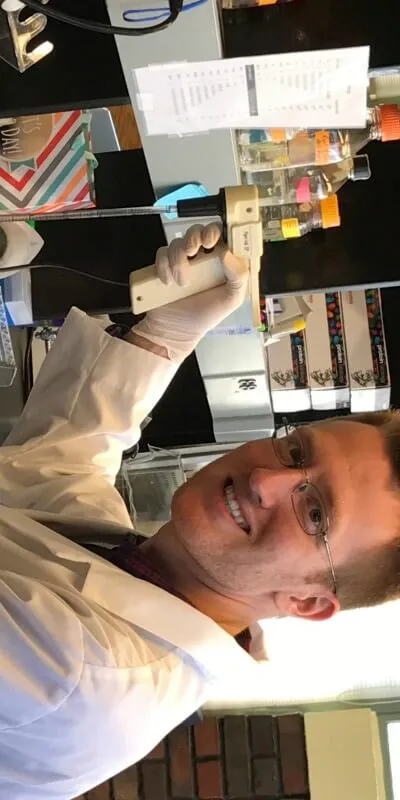For Myles McGowan, a master’s degree in Medical Laboratory Science offers a path to a career on the cutting edge of technological innovation with the potential to directly impact patients’ lives.
His ultimate plan: To help uncover the mystery of cancer.
McGowan currently works with Dr. Paula Deming, professor and chair of the Department of Medical Laboratory and Radiation Sciences, on a study that focuses on the physical interaction between the molecules La related protein 4 (LARP4) and Protein Kinase A (PKA). The research aims to identify new therapeutic targets for human diseases like cancer.
All Medical Laboratory Science master’s candidates undertake a capstone research experience with a faculty mentor - and program faculty take a personal approach to education, McGowan said. Custom degree tracks combine hands-on clinical experience with courses in advanced evidence-based practice, health care management, and scientific research; and students have the option to work directly with faculty in their labs. Students also have access to research opportunities, internships and state-of-the-art technology in the department’s expanded research suite.
“Seeing faculty that take a true interest in their students’ future and education makes me a stronger student and future employee,” McGowan said, adding that his research and classes regularly challenge him to think creatively when solving a problem. “Faculty encourage students to not only learn concepts, but to think of how to apply them, particularly to patient case studies.”
Students complete a three-course series in research method and design that culminates with a capstone project. The final semester of the Medical Laboratory Science master’s program involves an intensive laboratory experience during which students work one-on-one with a staff technologist concentrating in clinical or public health laboratory science at one of more than a dozen affiliate sites that include Brigham and Women’s Hospital in Boston, Yale New Haven Hospital, District of Columbia Health Department in Washington D.C. and the UVM Medical Center.
Program graduates are prepared to promote positive patient outcomes through communication of laboratory-related information to health care professionals and patients and their families; conduct evidence-based research to improve patient outcomes and advance the field; and apply advanced practice knowledge and technical skill to leadership roles in the medical laboratory science profession.
The U.S. Bureau of Labor Statistics projects 16 percent growth among medical laboratory scientists between 2014 and 2024 in a field that already employs 163,400 people and is listed by U.S. News and World Report among the 100 best careers of 2017.
